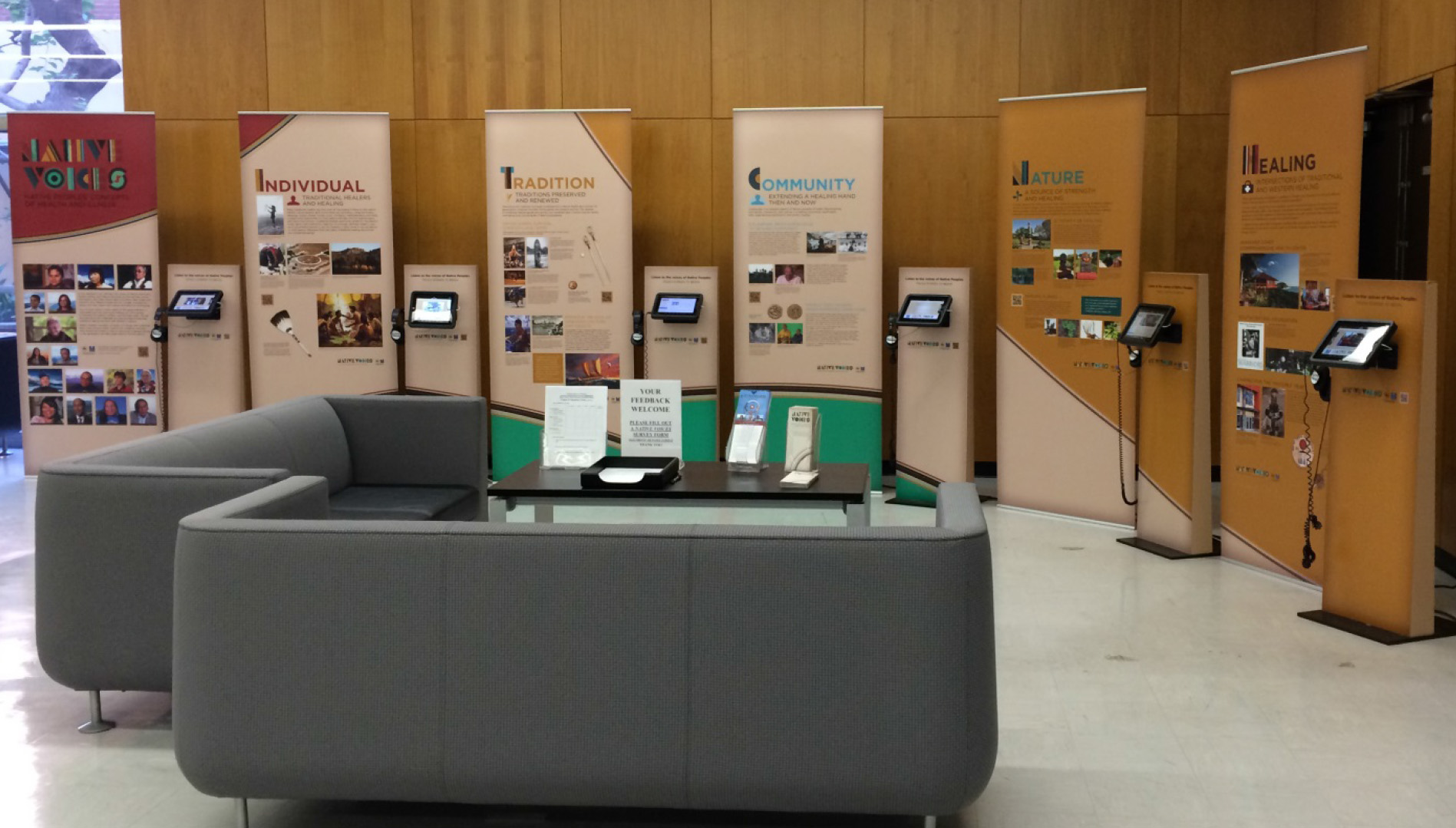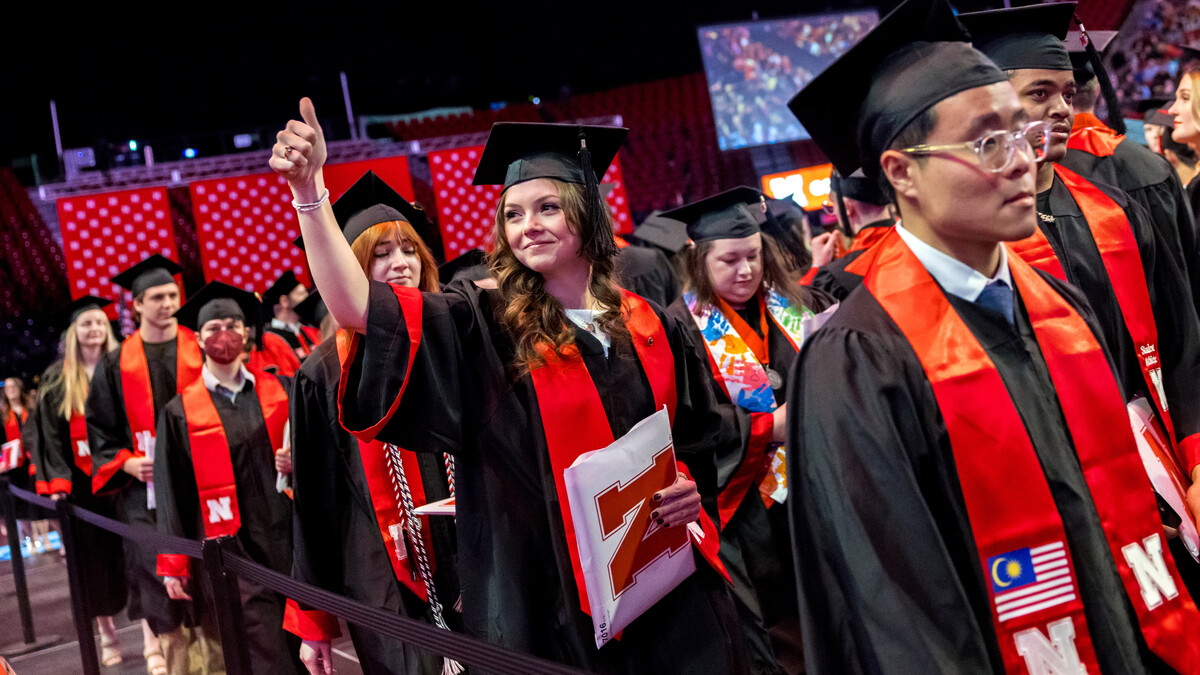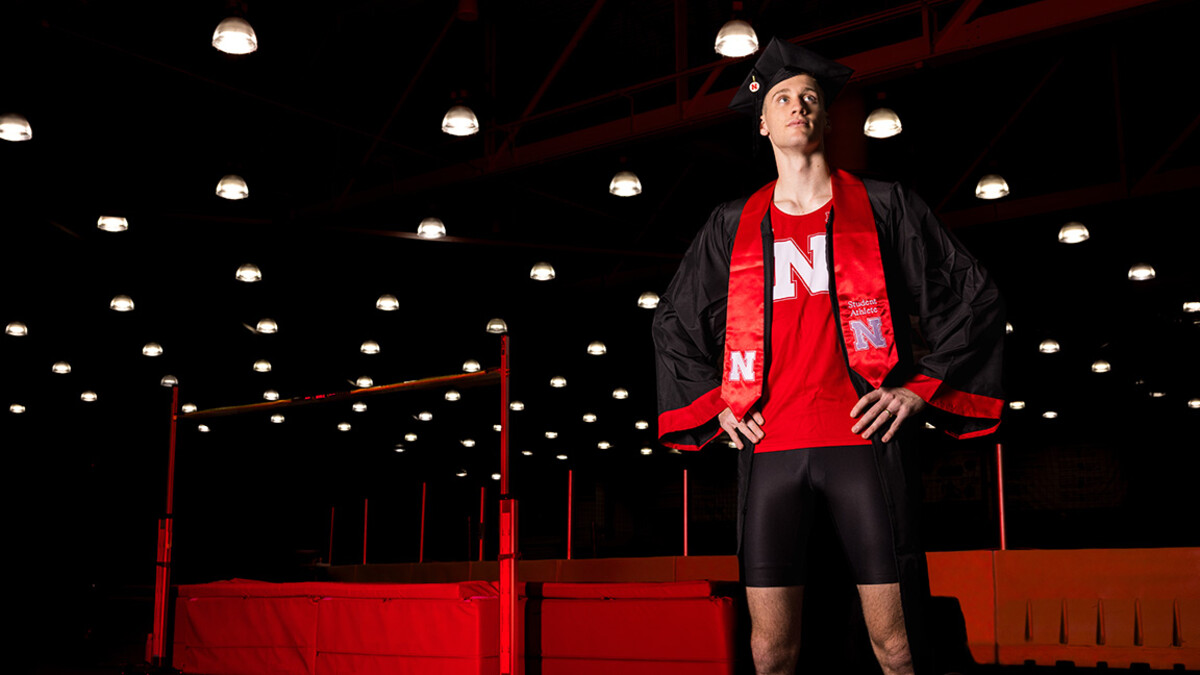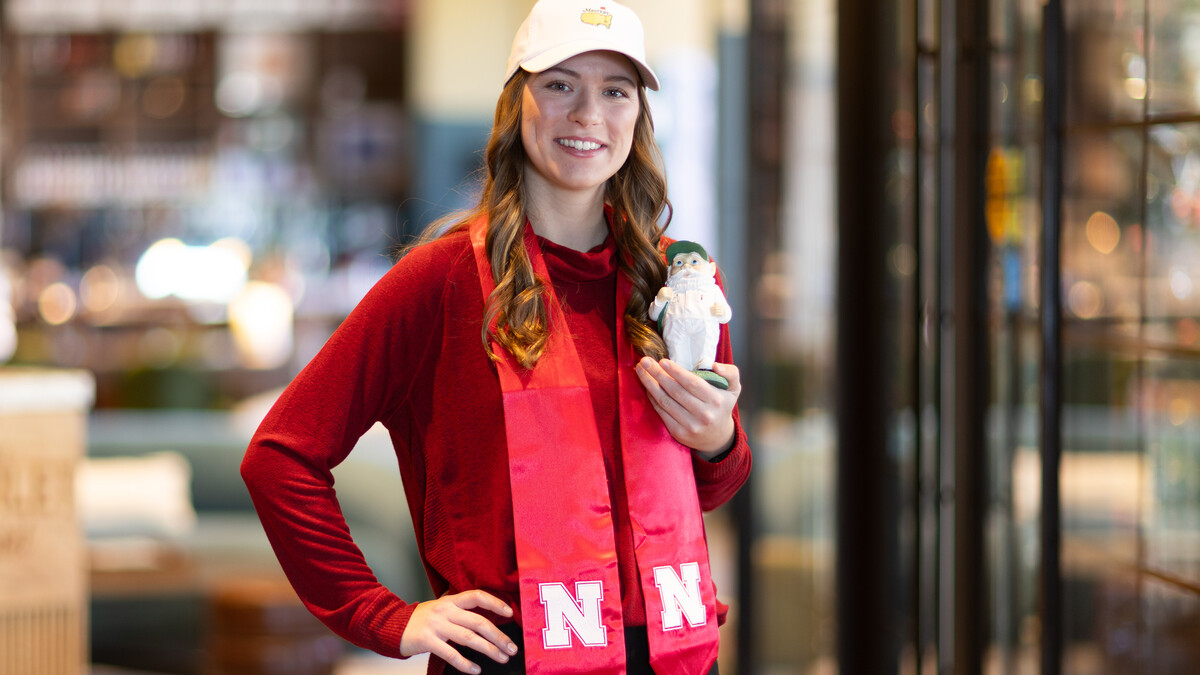
A new traveling exhibition, “Native Voices: Native Peoples’ Concepts of Health and Illness,” will be on view from Jan. 31 through March 12 on the second floor of Love Library South.
The exhibition, a partnership between Vision Maker Media and University of Nebraska–Lincoln Libraries, examines concepts of health and medicine among contemporary American Indian, Alaska Native and Native Hawaiian people. Produced by the National Library of Medicine, the exhibition explores the connection between wellness, illness and cultural life through a combination of interviews with Native people, artwork, objects and interactive media.
A special opening event is 4 to 6 p.m. Feb. 4 in Love Library South’s Peterson Room (221). Dr. Siobhan Wescott, assistant director of Indians Into Medicine at the University of North Dakota School of Medicine and Health Sciences, will present “How Do You Find Research on Native Americans? Untangling the Confusing Search Terms and Identifying Gaps in the Research.” A reception will follow.
Other planned events include a screening of the documentary “Ohiyesa: The Soul of an Indian” at 4 p.m. Feb. 24 and a lecture on historical trauma by Misty Frazier, executive director of the Nebraska Indian Child Welfare Coalition, at 4 p.m. March 9. The documentary “Medicine Woman” will screen at 4 p.m. March 12. A discussion, in collaboration with University Housing’s MADE committee, will follow. All events will be in the Peterson Room.
Wescott is an Athabascan Indian from Fairbanks, Alaska. She earned a bachelor’s degree at Dartmouth College, Master of Public Health at the University of California, Los Angeles, and medical degree from Harvard Medical School. She has served as a board member of the Association of American Indian Physicians, AAIP representative to the American Medical Association and chair of the AMA Minority Affairs Section Governing Council.
Frazier is a member of the Santee Sioux Nation and a descendant of the Tlingit of Alaska. She is currently executive director of the Nebraska Indian Child Welfare Coalition. Before that, she was director of the Dakota Tiwahe Service Unit, the social services department for her tribe, for 12 years. She holds a bachelor’s degree in human resources and family sciences and master’s degree in sociology from Nebraska.
The National Library of Medicine has a history of working with Native communities as part of the library’s commitment to make health information resources accessible to people regardless of where they live or work. The “Native Voices” concept grew out of meetings with Native leaders in Alaska, Hawaii and the Lower 48.
“We hope that visitors in communities across the country will learn from the ideas, practices and traditions shared here,” said Betsy L. Humphreys, acting director of the national library. “We hope, too, that those who host the exhibition will enrich it by including additional content and programs that reflect their local Native culture and history.”
Dr. Donald Lindberg, director emeritus of the national library, said: “This exhibition honors the Native tradition of oral history and establishes a unique collection of information. We hope visitors will find Native Voices both educational and inspirational, and we hope Native people will view it with pride.”








